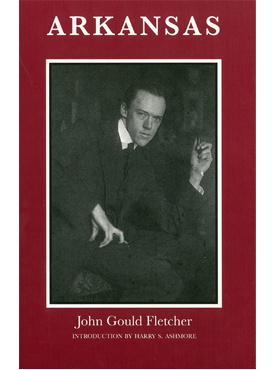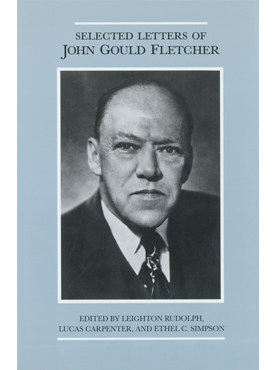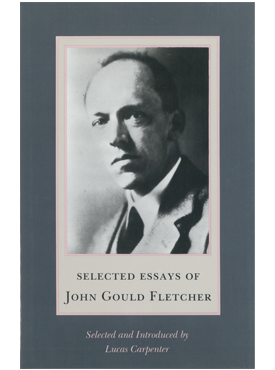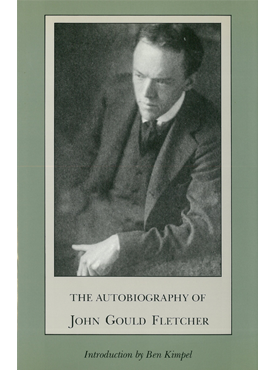Like a well-planned time capsule, Arkansas is a fascinating picture of the state’s evolution: from a wilderness explored by Hernando de Soto to a rowdy and often lawless frontier, a partner in the shameful dislocation of Native Americans, a state in the Confederacy, a source of homegrown populists, and always a land of opportunity.
As Harry S. Ashmore states in his introduction to this third volume of the John Gould Fletcher Series, “Arkansas still stands up as its author intended, a poet’s imaginative treatment of a ‘history both tragic and comic—with its deep legendary roots going far back into the remote prehistoric past.’ It has earned a permanent place among the books that must be read by those who seek to understand the matrix in which new forces of economic and social change are reshaping Arkansas’s traditional society.”
John Gould Fletcher was born in Little Rock in 1886 but spent much of his life in Europe where, with the aid of Ezra Pound and Amy Lowell, he gained recognition as an Imagist poet. After returning permanently to Little Rock, Fletcher became associated with the Agrarian movement in literature. He won the Pulitzer Prize in 1938 for his Selected Poems.
Harry S. Ashmore was executive editor of the Arkansas Gazette and won a Pulitzer Prize in 1958 for his editorials during the Little Rock Central high desegregation crisis. Ashmore died in 1998.
The John Gould Fletcher Series
The intent of the series is to present the best of Fletcher’s writing along with a generous selection of critical studies concerning Fletcher’s life and work. It is to be hoped that the series will reawaken and stimulate interest in a writer who, almost forty years after his death, is becoming known as perhaps the most representative poet of American literary modernism.
—Lucas Carpenter in the preface to Selected Poems of John Gould Fletcher




